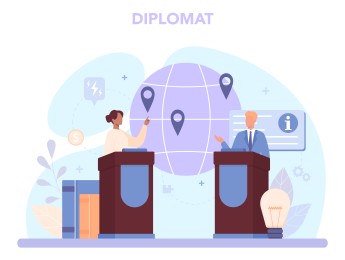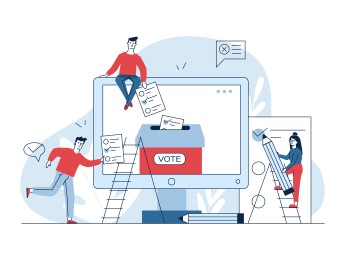Working in public affairs or regularly communicating at a governmental level requires a level of skill. This course aims to help delegates understand the best practices and techniques for engaging with policymakers. You will learn how campaigns and media coverage is used as leverage when it comes to government relations. It also covers influencing government policy and shaping legislation and giving you confidence using practices for this in many different areas, and upskilling your ability to bolster your organisation's public image using promotions, thoughts, and causes.
The course investigates lobbying practice in detail and helps delegates understand the frameworks within and how they can apply them in different situations. It will also delve into various vital factors impacting how successful public affairs training courses are when implemented. You must understand the fundamental principles of government relations and public affairs. So, you will look at how you create a public affairs strategy and then implement the training of the strategy. It will give you the confidence to develop relationships with government officials and help you understand the best time to use each lobbying framework. Finally, you will spend some time learning how to design and implement media campaigns and activities.
Upon completion of this course, participants will be able to:
- Identify when, where and how to engage policy and legislative processes.
- Develop a strategy to integrate public affairs in your business
- Conduct meetings with high-level government officials confidently
- Engage with the media to create favourable public opinion
- Use social media as an emerging public affairs platform
- Effectively plan a public affairs strategy
- Make confident decisions about which practices are used in every context
- Integrate public affairs with other organisational disciplines
- Use public affairs for business objectives and conflict resolution
- Build campaigns that shape the policy and legislative environment
This course is intended for
- Ministerial & Ministerial Committee Level Professionals
- Governing Body & CEO Level Professionals
- Executive Management and Directors
- Government Relations Officers
- Public Affairs Officers
- Public Relations Officers
- Public Affairs Professionals
- Public Relations Professionals
- Policy Makers/Officers/Analysts/Professionals
Teaching takes place in a variety of settings, including face-to-face in a classroom environment, and will ensure that participants can expand their knowledge of the subject and increase their skill set. The course is delivered via various methods by a specialist tutor. This will include PowerPoint presentations, reviewing articles and other relevant materials, group or individual exercises and discussions. There may be some independent work set, and the course will require submitting articles to demonstrate understanding and an end-of-course test. Note-taking is encouraged, and you are welcome to use electronic devices to do this.
The course manual will form part of the learning but will give you references for the future. You are encouraged to ask questions and, if needed, spend time one to one with your tutor to review any issues. During your time in the classroom, you will be able to network with peers in similar roles.
Day 5 of each course is reserved for a Q&A session, which may occur off-site. For 10-day courses, this also applies to day 10
Section 1: What is a Public Affairs Strategy?
- Introduction to public affairs and government relations
- What is the role of public affairs?
- How to create a public affairs and government relations strategy
- Public affairs: stakeholder analysis and management
- Political landscapes: mapping public affairs
Section 2: Public Affairs Framework
- Setting objectives
- Stakeholders: effective positioning
- Stakeholders: engagement and supporting
- Management of issues
- Management of audiences
- How to build an influential argument
- Building alliances
Section 3: Strategies for Working with the Media
- Keeping media relations proactive
- Dealing with broadcast appearances
- Managing the campaign
- Advocacy advertising
- Press coverage and journalists
- When bypassing the news media matters
Section 4: Strategies for Working with Governmental Officials
- How to engage with government officials
- The dynamics of relationships with government officials
- What are lobbying frameworks
- Exploring direct lobbying
- Exploring grassroots lobbying
- Exploring integrated lobbying
Section 5: Executing Lobbying and Public Affairs
- What are the key issues that can impact success?
- Why digital media and technology trends matter
- What is corporate political activity
- Considering human rights and sustainable development
- Understanding the regulations surrounding lobbying activity
- Values, ethics and professionalism in public affairs
- What is globalisation?
- Public affairs linked with other corporate disciplines
Upon successful completion of this training course, delegates will be awarded a Holistique Training Certificate of Completion. For those who attend and complete the online training course, a Holistique Training e-Certificate will be provided.
Holistique Training Certificates are accredited by the British Assessment Council (BAC) and The CPD Certification Service (CPD), and are certified under ISO 9001, ISO 21001, and ISO 29993 standards.
CPD credits for this course are granted by our Certificates and will be reflected on the Holistique Training Certificate of Completion. In accordance with the standards of The CPD Certification Service, one CPD credit is awarded per hour of course attendance. A maximum of 50 CPD credits can be claimed for any single course we currently offer.
- Course Code PM2-102
- Course Format Classroom, Online,
- Duration 5 days












